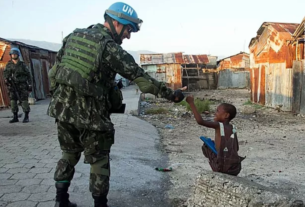The World Health Organization (WHO) has raised alarms over escalating violence in the West Bank, which is severely impacting healthcare services. Attacks on medical facilities, restrictions on movement, and financial strain on the healthcare system are making it difficult for people to access life-saving treatment.
“The healthcare system is under immense pressure,” said a WHO official. Medical workers face threats, and hospitals are struggling to operate under deteriorating conditions.
Over 480 attacks on healthcare facilities have been recorded since October 7, 2023. These attacks resulted in multiple deaths, injuries, and damage to ambulances and clinics.
More than half of the attacks occurred in Tulkarem, Jenin, and Nablus. These areas have seen heavy clashes, making it dangerous for medical personnel to reach those in need.
Ambulances are being blocked from reaching critical patients. Roadblocks and military operations delay emergency response times, leading to avoidable deaths.
Health workers are also being detained at checkpoints. These restrictions prevent them from reaching hospitals, worsening the healthcare crisis.
Essential medications are running out as supply chains break down. Nearly half of the required drugs are unavailable, forcing hospitals to ration treatments.
Primary care clinics have cut their operations to two days a week. Hospitals are working at 70% capacity due to financial struggles and staff shortages.
Medical staff have not received full salaries for almost a year. Funding issues have made it difficult to pay workers and maintain hospital operations.
“The situation is becoming unsustainable,” said a healthcare worker. Without urgent intervention, hospitals may be forced to shut down essential services.
The WHO is urging all parties to respect healthcare facilities. Attacks on hospitals and medical workers violate international humanitarian law.
Emergency aid is needed to restore medical supplies. Organizations are working to provide medicine and trauma care, but access restrictions slow their efforts.
Residents are struggling to find safe access to treatment. Many avoid traveling to hospitals out of fear of violence at checkpoints.
Communities are relying on local clinics, but resources are limited. Some areas lack enough doctors, forcing patients to travel long distances.
Psychological trauma is also rising due to ongoing violence. Mental health services are overwhelmed as people seek support for stress and anxiety.
Children and elderly patients are at the highest risk. Many cannot travel for medical care, increasing health complications.
International organizations are calling for urgent action. Without intervention, the crisis will worsen, leading to more preventable deaths.
The WHO continues to assist by supplying medicine and training healthcare workers. However, ongoing violence and funding shortages make it difficult to sustain operations.
The healthcare crisis in the West Bank is worsening every day. Protecting hospitals, patients, and medical workers is critical to preventing further suffering.




